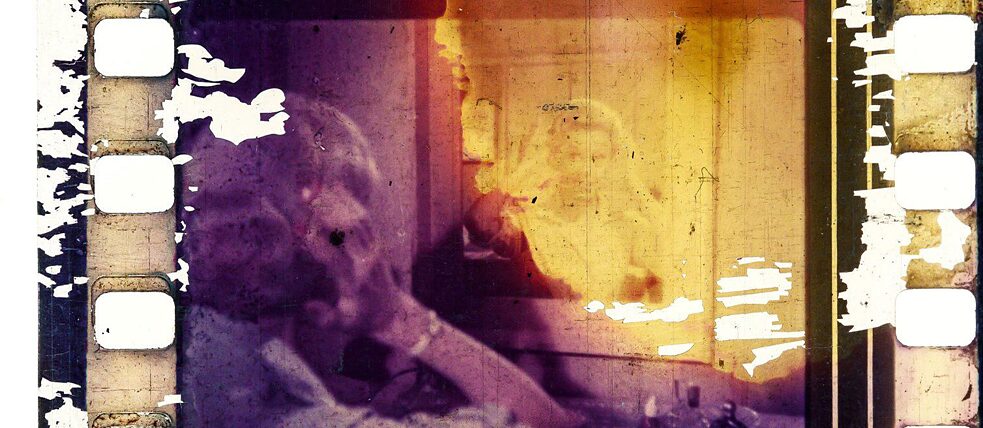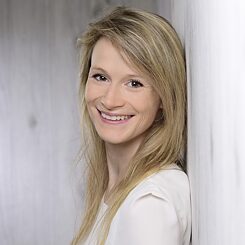Berlinale Bloggers 2023
“Preservation means a lot of action”

Many people contribute to making the Berlinale an important event in the calendar of all film enthusiasts every year. Elisa Jochum, head of the Film Heritage Department at the Deutsche Kinemathek, talks about her entry into the festival world and the offer of discovering old films in a whole new way.
 Photo (detail): © privat
Dr. Elisa Jochum, head of the Deutsche Kinemathek Film Archive and lecturer at Film Academy Baden-Württemberg is a film scholar and cultural historian. Her work and research stations included the Goethe-Institut, Humboldt University Berlin, University College London and Yale University.
Photo (detail): © privat
Dr. Elisa Jochum, head of the Deutsche Kinemathek Film Archive and lecturer at Film Academy Baden-Württemberg is a film scholar and cultural historian. Her work and research stations included the Goethe-Institut, Humboldt University Berlin, University College London and Yale University.
When asked how many times se has already visited the Berlinale, she replied:
This is only my 2nd Berlinale, can you believe it? Film has been a determining factor of my entire adult life and yet, until 2022, a Berlinale visit had never happened for me. I started my job at the Deutsche Kinemathek only a few weeks before last year’s festival. What a wonderful way to kick off my Berlinale timeline, too – because the institution and the festival are closely interconnected. The Deutsche Kinemathek is responsible for the Retrospective, Berlinale Classics & Homage, headed by our artistic director Rainer Rother.
It’s not only the programme, it’s also the people. Plenty of colleagues from all over the world of film heritage are in town for the occasion. The events bubble over with inspiring ideas that might spawn cooperations accompanying us into the year, long after the last Berlinale screen has gone dark. So, the festival has in a dramatic way transformed into a fixture in my calendar.
The restoration of David Cronenberg’s 1991 sci-fi drama “Naked Lunch” opens the Berlinale Classics section. Will you be in the audience?
Not many people would use the words Cronenberg and film heritage in the same sentence. But that’s what Naked Lunch is. From my point of view, screening the film showcases the richness – and, yes, youth – of film heritage. The film was shown in the Berlinale competition in 1992. Now Naked Lunch is coming full circle. I will certainly watch it.
Why film heritage – amid a sea of contemporary premieres – matters at a premier audience and industry festival:
The beauty of watching contemporary and heritage films side by side lies in the sparks that fly – between time periods, spaces, technologies, perspectives, and perceptions. Take this year’s Retrospective “Young at Heart”. People have come of age in – and at – the movies since the beginning of cinema. Have these films and the experience of watching them changed over time – and how? How have films of previous generations shaped the filmmaking represented in the contemporary festival sections? What do answers to these questions tell us about film, about societies, about us?
Speaking of sparks – the Deutsche Kinemathek’s current streaming programme accompanies the Retrospective by making a selection of coming-of-age films from our archive available. Free of charge. No geo-blocking.
Lest we forget that painstaking restorations make many heritage films accessible for the first time – in such high quality, in full, or at all – in a long period. The films thus celebrate veritable new premieres. At this year’s Berlinale, this does not only hold true for the Classics, where only new restorations are eligible, but also for several films of the Retrospective. Restorations allow rediscoveries (of films we have literally lost sight of). Restorations allow reevaluation (from a present-day vantage point).
When you took on the directorship of Deutsche Kinemathek’s Film Heritage department, you said your focus would be on "promoting the role of film archives as active societal players." What does that mean in terms of your programming and audience engagement plans?
The goal is to further an understanding of the role film archives (can) play and to dismantle a set of persisting myths in broader society. The archive and society are not separate, but the two constantly interact. The archive happens now – it is at least as much about the present and future as it is about the past. Preservation does not mean passivity, but a lot of action. The Deutsche Kinemathek and its film archive have been and – so we intend – will continue to be a great example of such activities. It’s crucial to bring the archive where people are, digitally and physically, and to engage with various audiences as well as the next generation of filmmakers. It is also about showing the “human side” of the archive – providing a sense and transparency regarding archival work as well as an (inter-)personal connection to that archive.
It will have been a good Berlinale 2023 for me when…
... I stood with others outside a Berlinale venue at 2am and still didn’t want to go home because our exchange about the last film was so captivating and energizing.
The interview with Elisa Jochum was conducted by Jutta Brendemühl, programme curator at the Goethe-Institut Toronto and blogger at German Film @Canada. Slightly abridged version of the original English text.